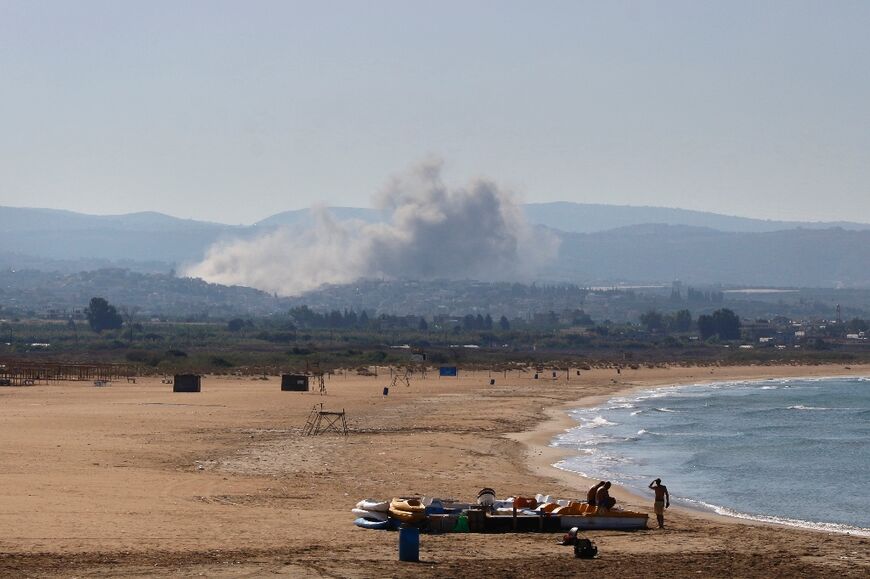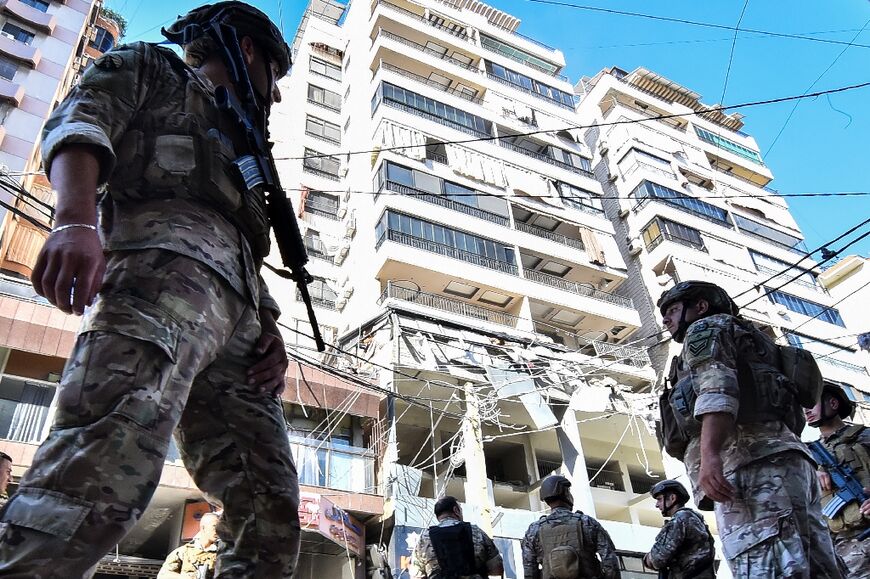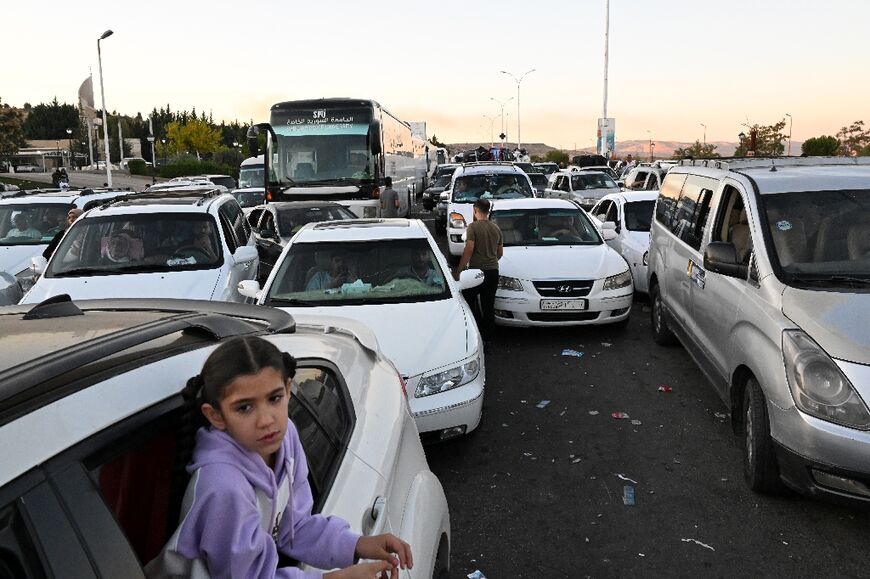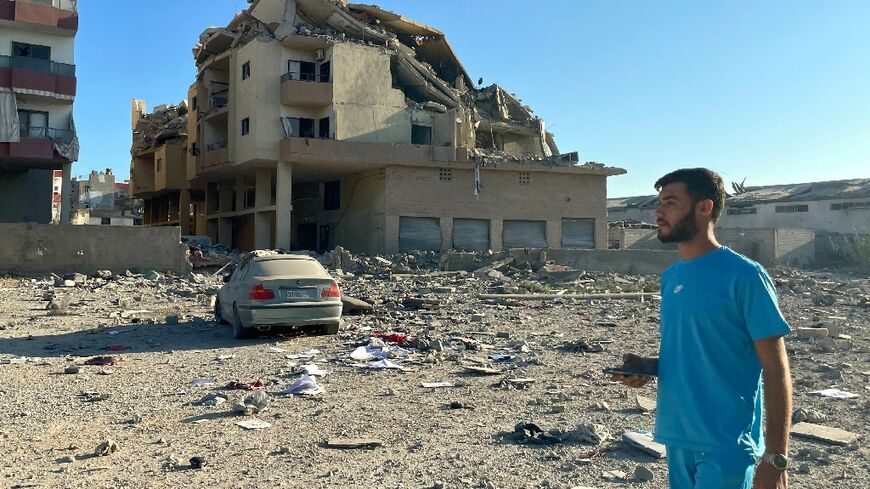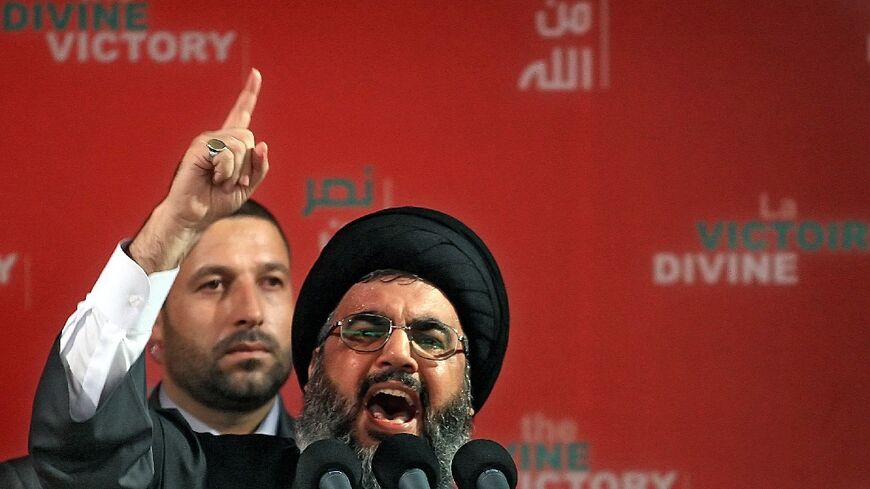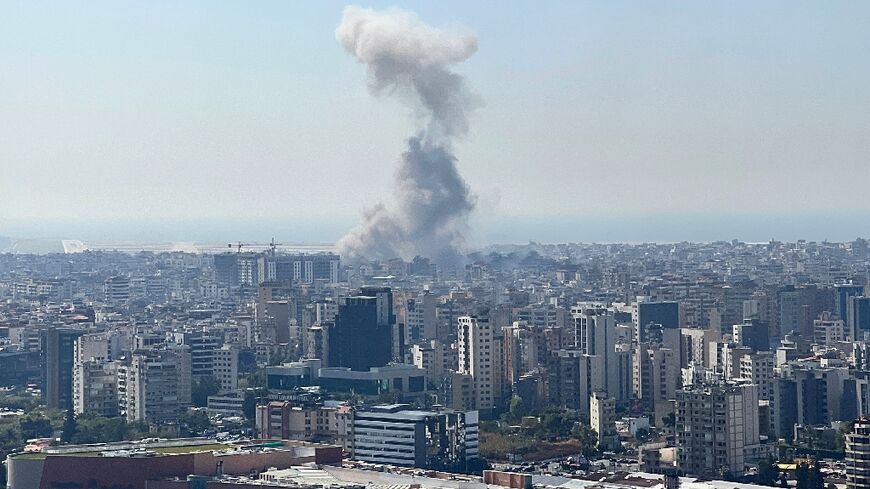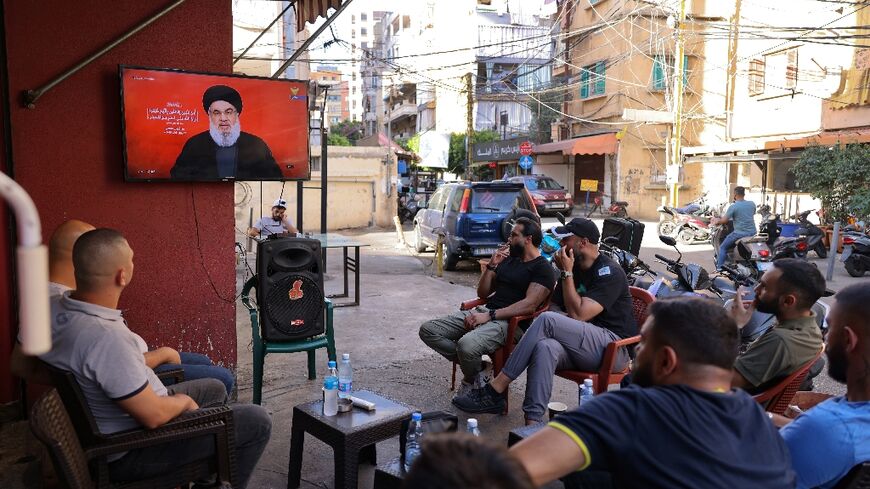Israel strikes Hezbollah bastion in Beirut

Israel conducted two rounds of air strikes on Hezbollah's main bastion in the south of Lebanon's capital Beirut, sending huge clouds of smoke soaring above the densely populated area.
Friday's strikes were heard across the Mediterranean city and sparked panic in the residential area that has been the Iran-backed movement's main stronghold for decades.
They were by far the fiercest strikes to hit Beirut since Israel shifted its focus from the war in Gaza to Lebanon this week, pounding Hezbollah strongholds around the country and killing hundreds of people.
Israeli television networks reported that Hezbollah chief Hassan Nasrallah was the target of the strike, though a source close to the group said he was "fine".
Nasrallah enjoys cult status among his Shiite Muslim supporters and is the only man in Lebanon with the power to wage war or make peace, but he leads a life in hiding to avoid assassination.
The Israeli army claimed early Saturday that its air strikes killed "Muhammad Ali Ismail, the commander of Hezbollah's missile unit in southern Lebanon, and his deputy," as well as "other senior officials".
The strikes felt "like an earthquake", according to Ahmad Ahmad, who fled his house in the southern suburbs.
A teacher in her 40s, Abir Hammoud, said: "I felt like the building was going to collapse on top of me."
The strikes were followed by a second bombing hours later, which Israel's military said targeted Hezbollah weapons stored in buildings in the area, a claim the group denied.
Hezbollah started fighting Israeli troops along the Lebanon border a day after its Palestinian ally Hamas staged its unprecedented attack on Israel on October 7.
Israeli Prime Minister Benjamin Netanyahu vowed in an address to world leaders on Friday that there would be no let-up in the battle against Hezbollah until Israel's northern border was secured.
- Warning to civilians -
A source close to Hezbollah said the initial wave of strikes had levelled six buildings, and according to a preliminary toll, six people were killed and 91 wounded.
Israeli military spokesman Daniel Hagari said the strike had targeted "the central headquarters" of Hezbollah in the southern suburbs of the city.
After the Beirut strikes, Hezbollah said it had fired more rockets into Israel "in defence of Lebanon and its people". There were no immediate reports of casualties.
The Israeli military warned civilians in parts of Hezbollah's south Beirut stronghold to evacuate the area before conducting its second bombing.
It also said it would not allow Iran to transfer weapons to its ally Hezbollah through Beirut airport -- adding that its jets were ready to intervene should any such transfers be detected.
Israel's army said the second wave of strikes had targeted Hezbollah targets in the Tyre area of southern Lebanon.
- 'Deadliest in a generation' -
The UN has repeatedly condemned this week's sharp escalation of violence in Lebanon.
"We are witnessing the deadliest period in Lebanon in a generation, and many express their fear that this is just the beginning," the UN humanitarian coordinator in Lebanon, Imran Riza, said.
In Israel, too, many were weary of the violence.
"It is incredibly exhausting to be in this situation. We don't really know what's going to happen, there's talk of a ground offensive or a major operation," said Lital Shmuelovich, a physiotherapy student.
US Secretary of State Antony Blinken appealed again for a ceasefire, after a US-led bid for a truce failed earlier this week.
"The path to diplomacy may seem difficult to see at this moment, but it is there, and in our judgement, it is necessary," Blinken said.
In New York, Netanyahu also addressed the war in Gaza, saying that Israel's military would continue to fight Hamas until it achieved "total victory".
Diplomats have said efforts to end the war in Gaza were key to halting the fighting in Lebanon and bringing the region back from the brink of all-out war.
But despite months of mediation efforts, a Gaza ceasefire remains elusive.
Hamas's October 7 attack resulted in the deaths of 1,205 people, mostly civilians, according to an AFP tally based on Israeli official figures that include hostages killed in captivity.
Of the 251 hostages seized by militants, 97 are still held in Gaza, including 33 the Israeli military says are dead.
Israel's retaliatory military offensive has killed at least 41,534 people in Gaza, most of them civilians, according to figures provided by the Hamas-run territory's health ministry. The UN has described the figures as reliable.
- 'Change the rules' -
The Lebanon violence has raised fears of wider turmoil in the Middle East, with Iran-backed militants across the region vowing to keep up their fight with Israel.
Netanyahu took aim at Iran in his UN General Assembly address, saying: "I have a message for the tyrants of Tehran. If you strike us, we will strike you."
He added: "There is no place in Iran that the long arm of Israel cannot reach, and that's true of the entire Middle East."
Analysts have said Iran would try to resist being dragged into the conflict.
But following the Beirut strikes, Iran's embassy in Lebanon said: "This reprehensible crime... represents a dangerous escalation that changes the rules of the game."
Iran's president, Masoud Pezeshkian, later condemned the strikes, branding them a "flagrant war crime".
burs-ser/jj/lb/cwl


